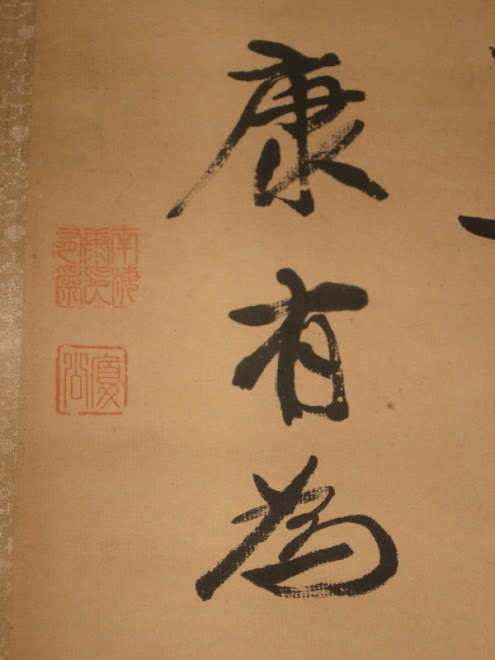We are pleased to re-publish this substantive China Review International essay on Homer Lea: American Soldier of Fortune by Lawrence M. Kaplan, 2010. The review also evaluates previous studies of Lea by Eugene Anschel, Frederic Chapin, Key Ray Chong and Clare Boothe Luce.
Homer Lea was probably more deeply involved with the Baohuanghui from 1900 to 1905 than any other American. From the beginning of their relationship Lea's conception of his role in the organization clashed with Kang's, but it took many years before Kang finally rejected Lea, who turned to the much more receptive Sun Yat-sen.
Kang was impressed with Lea's display of brilliance in a variety of fields--military strategy, politics and even finance. Kang clearly respected Lea's ability to help realize the Baohuanghui goal of training Chinese youth in modern military tactics. Lea's initiative in forming the Western Military Academy overcame Kang's earlier disappointment about Lea's unfulfilled promises to raise American forces for the Baohuanghui's 1900 Qin Wang uprising in China, not to speak of Kang's anger about Lea's publicity-filled send-off from the US.
Thank you to the author, China historian Roger R. Thompson, Western Washington University, a specialist in late Qing and early Republican history, and to the University of Hawaii Press, which has given permission for publication in Baohuanghui Scholarship.
"Who was Homer Lea and Why Should We Care?" by Roger Thompson, China Review International 19:1, 9-23, 2012.
skip to main |
skip to sidebar

Calligraphy of Kang Youwei

BAOHUANGHUI SCHOLARSHIP
A collaborative forum for documenting and presenting Baohuanghui research. The Baohuanghui (Protect the Emperor Society) was founded by exiled Chinese reformer Kang Youwei in 1899 to promote constitutional reform in China. It became the first and the largest Chinese transnational organization with at least 230 chapters worldwide and a broad reach into China. The documents on this blog are updated frequently, and scholarly input is requested.
Search This Blog
Labels
- Archives (18)
- Bibliography (3)
- Mapping (10)
- News (19)
- Scholars (9)
No comments:
Post a Comment